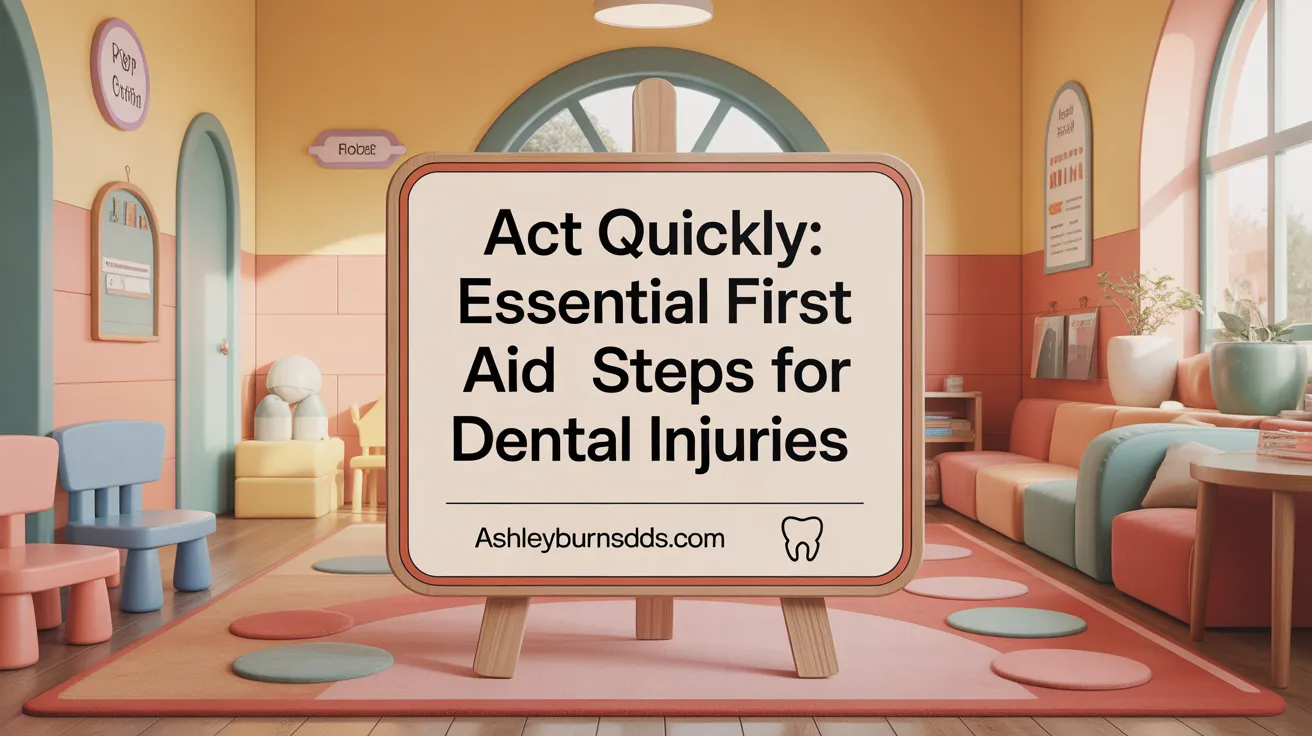Navigating Dental Emergencies During Travel
Traveling can be filled with excitement and adventure, but dental emergencies can quickly disrupt your plans and cause discomfort. Understanding how to recognize, manage, and prevent dental issues while away from home is vital to ensuring your trip remains enjoyable and pain-free. This article provides comprehensive advice on handling unexpected dental problems during travel, from preparation and first aid to seeking professional care abroad.
Preventing Dental Emergencies Before You Travel

What tips can help prevent dental emergencies while traveling?
Proactively preventing dental issues on the road involves several simple yet effective strategies. Start with scheduling a dental check-up 2 to 4 weeks before your trip. This helps identify and resolve minor problems that could worsen during your travels.
Maintaining good oral hygiene is crucial. Brush twice daily with fluoride toothpaste and floss regularly. Travel-sized dental products can make routine care easier while on the move.
Be mindful of your diet. Avoid hard or sticky foods that can chip or damage your teeth. Instead, opt for soft, nutritious foods that are gentle on your mouth.
Packing a dental emergency kit is highly recommended. Include painkillers, temporary filling material, dental wax, gauze, and a small mirror. Keep your dentist’s contact details handy in case urgent help is needed.
Safe activity choices also help prevent injuries. Avoid risky behaviors like diving into shallow water, running on wet surfaces, or engaging in contact sports without protective gear.
Lastly, stay hydrated by drinking bottled or filtered water. Proper hydration promotes saliva flow, which naturally protects your teeth from decay.
Implementing these practical tips can significantly reduce your risk of dental emergencies during travel, ensuring a smoother and healthier trip.
| Strategy | Recommendations | Notes |
|---|---|---|
| Pre-trip check-up | Schedule 2-4 weeks before travel | Addresses minor issues early |
| Oral hygiene | Brush twice daily, floss regularly | Use travel-sized products |
| Dietary habits | Avoid hard or sticky foods | Protects teeth from damage |
| Travel kit | Include pain relievers, temporary fillings, wax | Prepare for emergencies |
| Safe activities | Avoid risky physical behaviors | Prevent injuries |
| Hydration | Drink bottled or filtered water | Promotes saliva production |
Recognizing and Responding to Dental Emergencies on the Go

How can I recognize if I am experiencing a dental emergency?
A dental emergency can be identified by signs such as intense, lingering tooth pain, uncontrolled bleeding inside the mouth, and noticeable swelling of the gums or face. Trauma, including cracked, chipped, or completely knocked-out teeth, also indicates an emergency. Symptoms like difficulty swallowing, speaking, or breathing, along with facial or jaw swelling, need immediate attention. If a restorative dental work like crowns or fillings becomes loose or falls out, or if there are persistent mouth sores, these may require urgent care. Severe pain that does not ease with over-the-counter medications, or signs of infection such as fever or foul taste, also point to urgent issues needing quick professional response. Recognizing these signs early ensures you seek prompt treatment and prevent complications.
Assessing severity of symptoms
When assessing a dental issue abroad or while traveling, consider the intensity of pain, presence of bleeding, and extent of swelling. For example, bleeding that lasts over 10 minutes or pain that worsens despite medication warrants urgent care. A loose or missing tooth following an accident is an emergency, especially if it’s causing bleeding or pain. Injuries with soft tissue bleeding, such as lips, cheeks, or tongue, need prompt professional treatment to control bleeding and prevent infection. If swelling of the face or cheeks is severe or accompanied by difficulty swallowing or breathing, seek emergency care immediately. Quick assessment helps determine whether simple remedies suffice or if immediate dental intervention is necessary.
Immediate first aid steps for common injuries
For knocked-out teeth, gently rinse the tooth without scrubbing, then try placing it back into the socket if possible. If re-insertion isn’t feasible, keep the tooth moist in a cup of cold milk, saline, or saliva, and seek urgent dental care. For chipped or fractured teeth, rinse the mouth with warm water, and if sharp edges are present, cover them with dental wax or a piece of sugar-free gum to prevent soft tissue injury. Applying a cold compress to the cheek or face can reduce swelling and relieve pain. For bleeding soft tissue injuries, use a clean cloth or gauze to apply gentle pressure. Remember, these first aid measures are temporary, and professional care is necessary to ensure proper healing.
Using a dental emergency kit effectively
Packing a well-stocked dental emergency kit ensures readiness for unexpected injuries while traveling. Essential items include over-the-counter pain relievers, gauze pads, a small mirror, temporary filling material or dental wax, toothbrush, floss, and saline solution or clean water. If a tooth is knocked out, always have a container with milk or saline for preservation. For a broken filling or crown, carrying some temporary dental cement or dental wax can provide short-term relief. When using the kit, gently rinse any injuries, cover sharp edges or exposed tissue, and store knocked-out teeth properly. Having this kit on hand can make managing dental emergencies smoother until professional help is available.
When to seek professional care urgently
You should seek immediate dental treatment if symptoms include severe, persistent pain, uncontrollable bleeding, or facial swelling. Dental injuries such as a knocked-out tooth, a tooth fracture, or a lost filling or crown need prompt attention to prevent infection or further damage. Signs of soft tissue injury, such as cuts to lips, cheeks, or tongue, that do not stop bleeding require urgent care. Also, if you experience worsening pain, fever, or a foul taste due to suspected infections, do not delay contacting a dentist. Rapid professional intervention can preserve teeth, relieve pain, and address infections, thereby avoiding long-term complications.
Managing Common Dental Emergencies During Travel

Handling toothaches safely on the go
When experiencing a toothache while traveling, start by rinsing your mouth with warm salt water to reduce bacteria and inflammation. Using over-the-counter pain relievers can also help manage discomfort. Eating soft foods and avoiding very hot or cold drinks can prevent aggravating the pain. If the pain persists or worsens, it’s essential to find an emergency dentist promptly.
Dealing with lost crowns or fillings
A loose crown or filling exposes sensitive areas and should be addressed quickly. Temporarily, you can reattach a fallen crown using dental cement or even over-the-counter dental wax if available, and avoid chewing on that side. For lost fillings, clean the area gently and apply temporary filling material or dental wax. Keep any pieces of a broken filling or crown in milk or saline to preserve them for potential reattachment.
Temporary fixes for broken or cracked teeth and dentures
If a tooth breaks or cracks, rinse the mouth gently with warm water and save any broken fragments. Cover any sharp edges with dental wax or sugar-free gum to protect your cheeks or tongue. For broken dentures, gather all pieces and visit a dentist as soon as possible for repair.
Pain management techniques
To control pain, carry a small emergency kit with painkillers like ibuprofen or acetaminophen, dental floss, a small mirror, and temporary adhesives. Applying a cold compress to the cheek can reduce swelling and alleviate discomfort. If pain is caused by air pressure during flying, it might subside after landing, but ongoing pain should be evaluated by a dentist.
Avoiding further damage until professional care
Until you can see a professional, avoid chewing hard foods or sticky candies, and steer clear of extreme temperatures that could worsen sensitivity. Maintaining good oral hygiene, staying hydrated, and avoiding strenuous activities can also prevent further issues.
| Emergency Situation | Immediate Action | Long-term Resolution | Additional Tips |
|---|---|---|---|
| Toothache | Rinse with salt water, take pain relievers | Visit the dentist for diagnosis and treatment | Schedule a check-up after traveling |
| Lost crown or filling | Use temporary adhesive or wax, keep the fragment safe | Reattach or replace in a dental clinic | Carry a mini dental repair kit |
| Broken or cracked teeth | Save broken pieces, rinse, cover sharp edges | Obtain professional repair or restoration | Avoid chewing on affected side |
| Dislodged dentures | Keep all pieces, avoid using until fitted | Repair or adjustment at a dental clinic | Use denture adhesive temporarily |
Remember, prompt professional care is vital in all dental emergencies. Knowing how to handle these situations temporarily can make a significant difference until you receive proper treatment.
Seeking Professional Dental Care Abroad
When traveling internationally, immediate access to dental care can be crucial in an emergency. To find a reliable local emergency dentist, start by using online searches combined with reviews and directories specific to the country or region. Many countries have professional dental associations or clinics listed on the internet that meet national standards.
You can also ask hotel staff, tour guides, or local residents for recommendations on trusted dental clinics or emergency services nearby. If your travel insurance includes a 24/7 helpline, contact it for assistance in locating approved dental providers. Embassies and consulates may also provide lists of English-speaking dentists or clinics that cater to tourists.
Understanding the payment process and insurance coverage is essential before treatment. Many clinics require upfront payment, especially abroad, so prepare by carrying a credit card or sufficient funds. Keep all receipts and detailed records of the treatment, which are necessary for insurance claims. When returning, follow up with your regular dentist and file claims through your travel insurance by providing specifics such as treatment details, the involved teeth, and costs.
Effective communication with dental staff can ensure your needs are understood. If language barriers exist, request a translator or use translation apps. Clearly describe your symptoms, mention any allergies, and explain previous dental conditions or procedures.
Post-treatment, schedule a follow-up appointment within a week of returning home. Maintaining good oral hygiene, avoiding hard foods, and using prescribed medications as instructed help ensure complete recovery. Proper planning, including pre-trip dental checkups and carrying a dental emergency kit, prepares you to handle unexpected dental issues during travel.
Preparing a Dental Emergency Travel Kit and Final Tips
When traveling, especially to places like Fort Walton Beach or abroad, preparing a dental emergency kit is a smart step to handle unexpected dental issues promptly.
What should I include in a travel dental kit?
A well-stocked kit should contain several essential items. These include over-the-counter pain relievers such as ibuprofen and acetaminophen to help manage pain. Dental wax or sugar-free gum can temporarily cover sharp edges of broken teeth. You should also carry temporary filling material, dental floss, salt packets or antiseptic mouthwash, gauze packs, cotton balls, tweezers, and a small flashlight for better visibility. Keep a list of emergency dental contacts and your insurance information.
How do I use temporary repair products effectively?
For broken or chipped teeth, rinse your mouth with warm water and carefully dry the area. Use dental wax or temporary filling paste to cover sharp or exposed areas. If a filling or crown falls out, temporarily reattach it with dental cement or pack the area with sugar-free gum or filling material. Always follow the instructions on commercial temporary repair products for best results. These measures can prevent further damage and alleviate discomfort until you see a dentist.
Carrying and using pain relief medications
Pain medications are crucial during emergencies. Carry a supply of OTC drugs like ibuprofen and acetaminophen. Take them as directed — alternating them can help manage severe pain, especially if transportation delays medical treatment. Always use medications with proper labeling and be mindful of any allergies or contraindications.
Importance of follow-up dental visits after travel
Emergency care is often just the first step. After returning, schedule a follow-up appointment with your regular dentist to assess any damage, ensure proper healing, and address underlying issues. Keeping good oral hygiene, avoiding hard or sticky foods, and maintaining routine dental check-ups can prevent future emergencies.
Additional safety and hygiene recommendations
Before travel, avoid hard or sticky foods that could cause damage. Stay hydrated and practice good oral hygiene by brushing twice daily and flossing regularly. Pack a travel-sized dental hygiene kit and wear mouthguards during sports. Also, research and identify local dental clinics with good reviews and English-speaking staff. These steps help minimize risks and ensure quick access to care if needed.
Scheduled preparations, properly packed emergency supplies, and awareness of local dental services can significantly reduce the impact of unexpected dental emergencies while traveling, helping you enjoy your trip with peace of mind.
Ensuring a Smooth Trip Despite Dental Challenges
Dental emergencies while traveling can be distressing, but with proper preparation, quick response, and knowledge of first aid and local care options, you can minimize discomfort and avoid serious complications. Prioritize preventive measures before your trip, keep a well-stocked emergency kit handy, and know when and how to seek professional help. After receiving treatment abroad, always follow up with your regular dentist to maintain your oral health. By staying informed and prepared, you can confidently handle dental emergencies and keep your travels on track.
References
- How to Handle a Dental Emergency While Traveling
- How to Handle A Dental Emergency While Traveling
- Dental Emergency While Traveling? Here's What to Do
- How to Handle Dental Emergencies While Traveling
- Travel Dental Emergencies and Prevention
- What to Do in a Dental Emergency While Traveling?
- Dental Emergency While Traveling | Ellicott Mills Dental
- What to Do for a Dental Emergency When Traveling Abroad
